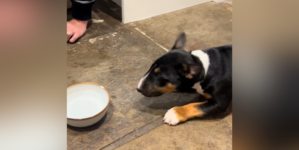-
Court orders Costa Rican government to release Asian migrants deported by Trump - 12 mins ago
-
76ers Expect Joel Embiid to Return From Knee Surgery in Time for Training Camp - 29 mins ago
-
Puppy’s Suspicious Reaction to Sparkling Water Declared Relatable: ‘Valid’ - 36 mins ago
-
Elon Musk impersonators scam victims with fake Tesla and cash giveaways - 44 mins ago
-
Budapest Student to Join Arctic Expedition on Nuclear Icebreaker - 51 mins ago
-
8-year-old girl pulled from sewer after 7 hours as floods batter southern China - about 1 hour ago
-
Tinder co-founder buys Walk of Fame property in Hollywood - about 1 hour ago
-
104 Super Bowls? Five Million Fans? The 2026 World Cup Will Be Colossal in Big Ways - about 1 hour ago
-
Rocket Classic: Collin Morikawa Rips Reporter amid Stunning Caddie News - about 1 hour ago
-
Szabolcsi Apple Pálinka Wins Grand Prize - about 1 hour ago
Warning Issued From 23 States Over SNAP Benefit Cuts
All 23 Democratic governors have penned a letter imploring Congress not to “gut” funding for the Supplemental Nutrition Assistance Program (SNAP) nor shift financing responsibility to the states.
Why It Matters
Republicans on the Senate Agriculture Committee are working to pass major federal cost cuts to the program, which provides monthly benefits to for about 40 million low- and no-income Americans to help with the cost of groceries, as part of the One Big Beautiful Bill Act.
First revealed earlier this year, Republicans are planning to shift some of the responsibility for funding the food stamp program to states. Under currently rules, states pay for half of the administrative costs of running SNAP, while the U.S. Department of Agriculture (USDA) pays the other half. The USDA also covers the entire cost of benefits.
Numerous states have warned they are unable to afford the extra financial commitment, and could be forced to drop out of the program entirely, which could leave some of America’s poorest without food aid.
Newsweek contacted the Senate Agriculture Committee for comment via email outside of regular working hours on Thursday.
What To Know
The letter addressed to Senate and House minority and majority leaders argues that cost-sharing proposals outlined in the bill would “effectively gut this critical food assistance that helps families with children, older adults, and working people afford the rising cost of groceries and put food on the table.”
Signed by the 23 governors, it warns that some states may need to withdraw from the program entirely because they cannot afford it, “potentially cutting off millions of Americans from this vital assistance.”
GETTY
The letter warns that Congress is putting states in an “impossible ultimatum,” forcing them to either find new funding to cover federal SNAP cuts or reduce access to critical food assistance. They called the expectation that states could realistically backfill such cuts “unrealistic,” emphasizing that failure to meet the full cost-share would leave states with few choices: cut SNAP enrollment or shut down their programs entirely.
“Strained state budgets cannot backfill these cuts,” it reads, “especially as Congress simultaneously proposes to slash Medicaid, disaster relief, and other federally-funded safety net programs.”
The following governors have signed the letter:
- Arizona Governor Katie Hobbs
- California Governor Gavin Newsom
- Connecticut Governor Ned Lamont
- Colorado Governor Jared Polis
- Delaware Governor Matt Meyer
- Hawaii Governor Josh Green
- Illinois Governor JB Pritzker
- Kansas Governor Laura Kelly
- Kentucky Governor Andy Beshear
- Maine Governor Janet Mills
- Maryland Governor Wes Moore
- Massachusetts Governor Maura Healey
- Michigan Governor Gretchen Whitmer
- Minnesota Governor Tim Walz
- New Jersey Governor Phil Murphy
- New Mexico Governor Michelle Lujan Grisham
- New York Governor Kathy Hochul
- North Carolina Governor Josh Stein
- Oregon Governor Tina Kotek
- Pennsylvania Governor Josh Shapiro
- Rhode Island Governor Dan McKee
- Washington Governor Bob Ferguson
- Wisconsin Governor Tony Evers
Revised Senate Plans
Under revised Senate plans, states can decide whether to use their payment error rates from either fiscal year 2025 or 2026 to determine their cost-sharing obligations starting in fiscal year 2028. But beginning in fiscal year 2029, each state’s share will be based on the average error rate from the previous three years.
Under the proposal, states that keep their SNAP payment error rates under 6 percent won’t have to contribute financially. For all others, the maximum cost a state could be required to cover is capped at 15 percent.
What People Are Saying
Colorado Governor Jared Polis: “Hundreds of thousands of Coloradans rely on SNAP to access food and we urge Congress not to make these drastic cuts. These cuts would hurt children and families, communities and our economies, while stretching state budgets even further.”
Darcy Milburn, director of Social Security and health care policy at the Arc of the United States, previously told Newsweek: “Shifting responsibility for funding SNAP onto states would upend state budgets. SNAP is an optional program for states, so state governments may decide to address this fiscal challenge by reducing SNAP benefits, restricting eligibility, or even opting out of SNAP entirely,”
What Happens Next
After being approved by the House of Representatives in May, the SNAP portion of the bill is currently being considered by the Senate Agriculture Committee, with a view to passing the entire bill by Independence Day.
Are you a SNAP recipient worried about cuts the program? Email a.higham@newsweek.com
Source link






























